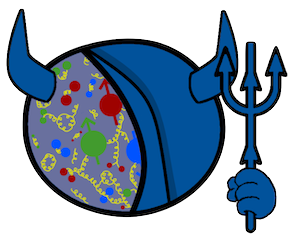Speaker
Description
Multiplicity studies are a fundamental measurement of particle physics, detailing the production fraction of a particle species within a more general particle process. Studies of hadron multiplicities within Semi-Inclusive Deep Inelastic Scattering (SIDIS) use the non-perturbative generation of hadrons from lepton-nucleon scattering to delve into nature of the hadronization process. Being that this process is the convolution of the perturbative electromagnetic hard scattering cross section, and the non-perturbative quark parton distributions and fragmentation functions, multiplicity studies can help reveal information about the non-perturbative structure of the proton. Moreover, the transverse momentum of the final state hadrons provides insight into the transverse momentum and spin of the fragmenting partons. Neutral pion production, unlike charged pion case, is not expected to have any major physics backgrounds, such as diffractive vector meson, semi-exclusive hadron production, or longitudinal photon contributions, and can provide a unique tool to directly study the production of hadrons. This work involves the SIDIS production of neutral pions at CLAS12, the CEBAF Large Acceptance Spectrometer for 12 GeV, where a 10.6 GeV electron beam was scattered off a fixed liquid hydrogen target in the Fall of 2018. We present the current status of the neutral pion multiplicity studies at CLAS12.

